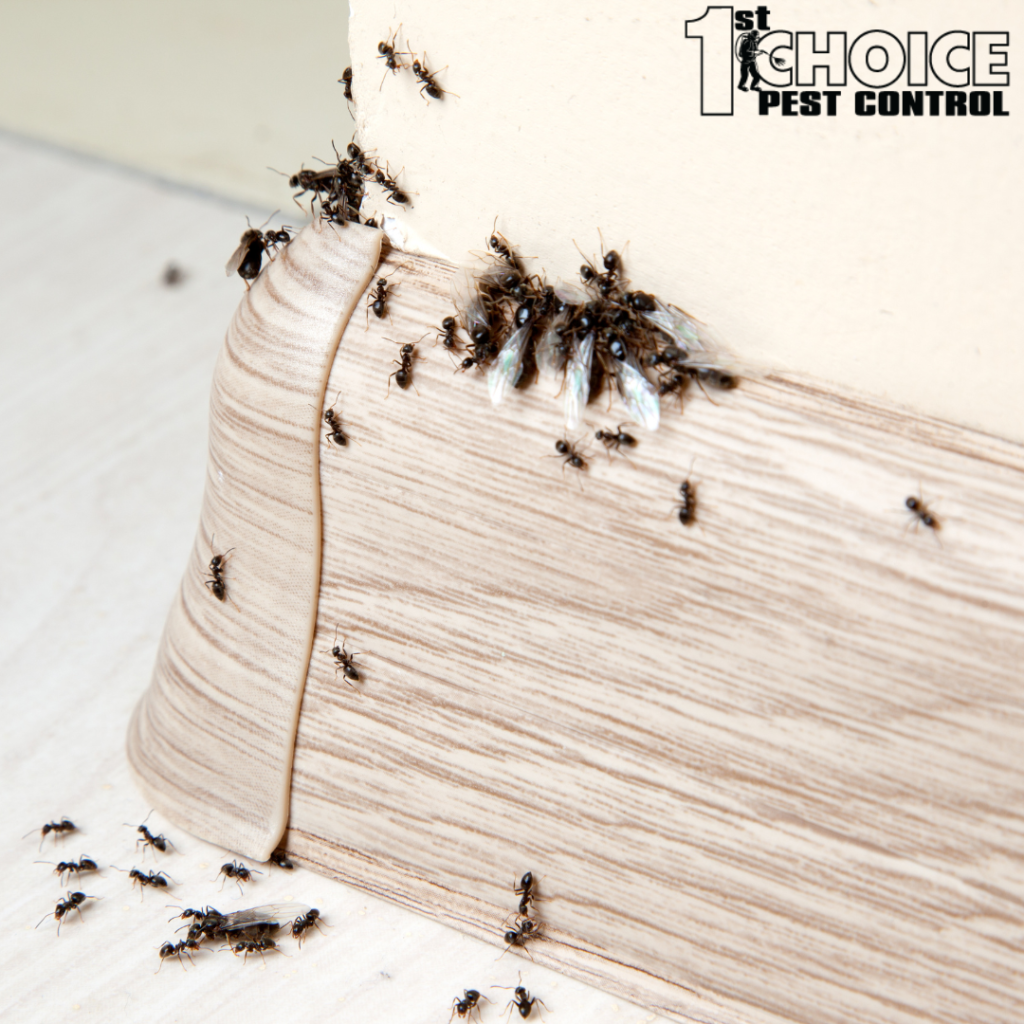Debunking Home Remedies for Ant Infestations: What Works and What Doesn’t
Ant infestations are a universal household nuisance, one that has homeowners scrambling for effective remedies. Whether it’s a trail of black ants on the kitchen counter or a congregation near a food spill, the presence of these tiny invaders often prompts a sense of urgency. Over the years, countless home remedies have surfaced, each promising to be the magic solution for ant woes.
From kitchen ingredients to old wives’ tales, these remedies are as diverse as they are popular. But how many of these are truly effective? And how many are mere myths passed down through generations? In this blog, we’ll delve into the world of home remedies for ant infestations, separating the tried-and-true from the merely anecdotal. Let’s discover which methods stand up to scrutiny and which ones crumble under the weight of facts.
Commonly Believed Myths
- Vinegar: For many, vinegar is seen as a catch-all cleaning and repelling agent. It’s commonly believed that the pungent smell of vinegar repels ants and disrupts their pheromone trails, preventing them from finding their way back to food sources. However, while vinegar might temporarily erase these trails, it doesn’t necessarily deter ants in the long run. They can quickly re-establish their paths once the scent of vinegar dissipates.
- Cornmeal: Another popular remedy is to sprinkle cornmeal, hoping that ants will consume it, be unable to digest it, and ultimately perish. The reality, however, is different. While ants might be attracted to cornmeal as a food source, they don’t consume it in a manner that harms them. Instead, they might just carry it back to their nest for further processing.
- Coffee Grounds: Many homeowners swear by scattering used coffee grounds as a repellent. It’s said that ants detest the smell and texture of these grounds. Although coffee grounds might disrupt ant activity temporarily, they are not a long-term solution. Ants can easily find alternative routes or adapt to the presence of the coffee remains, making it a less-than-ideal remedy.
In the face of these myths, it’s essential to discern which remedies are genuinely effective and which ones provide only temporary relief—or no relief at all. Before you begin sprinkling your pantry contents around your home, it’s worth knowing the truth behind these myths.
Home Remedies for Ant Infestations
- Diatomaceous Earth: Diatomaceous earth (DE) is a natural and potent remedy against various pests, including ants. It’s made from the fossilized remains of tiny aquatic organisms known as diatoms. When ants come into contact with DE, the powder damages their exoskeleton, leading to dehydration and eventual death. For homeowners looking for an environmentally friendly solution, DE is an excellent choice. Sprinkle it in areas where ants are frequently seen, and watch as the pest problem dwindles. However, always ensure to use food-grade DE and keep it out of reach of children and pets.
- Lemon Juice & Cinnamon: While these might sound like ingredients for a delightful dessert, they’re also effective against ants. Both lemon juice and cinnamon possess strong scents that ants find deterring. By using these ingredients, you can disrupt ant pheromone trails, making it challenging for them to communicate and navigate. A mixture of lemon juice and water can be sprayed on surfaces, while cinnamon sticks or powder can be placed in areas of ant activity. Not only will your home smell lovely, but it’ll also become less inviting to ants.
- Peppermint Oil: A favorite among natural remedy enthusiasts, peppermint oil acts as an excellent ant deterrent. The strong aroma of peppermint confuses and repels ants. By placing a few drops on cotton balls and distributing them around your home or diluting it in water to create a spray, you can create barriers that ants are reluctant to cross. As a bonus, peppermint oil also helps in keeping spiders and even mice at bay, making it a versatile addition to your pest control toolkit.
While these home remedies have been proven more effective than some traditional myths, it’s essential to note that they might not entirely eradicate a significant infestation. They can, however, be part of an integrated pest management approach, offering a first line of defense against unwelcome ant guests.
Precautionary Measures to Prevent Infestations
Ant infestations are easier to prevent than to combat. Here are some proactive steps to ensure your home remains ant-free:
- Hygiene: One of the primary attractions for ants is food. Ensure that all food is stored in airtight containers, especially sweets and pet food. Clean up any spills, crumbs, or residues promptly. A regular cleaning routine, including sweeping, mopping, and wiping down surfaces, can significantly reduce the chances of an infestation.
- Sealing Entry Points: Ants are experts at finding small entry points into homes. Periodically inspect the perimeter of your house for cracks, gaps, or holes, especially around doors and windows. Seal any potential entryways using caulk or another appropriate material.
- Regular Inspection: Designate a time every month or season to inspect hotspots like the kitchen, pantry, and storage rooms. Early detection of ant activity can prevent a full-blown infestation.
When to Seek Professional Help
While home remedies can effectively handle minor infestations, there are times when the expertise of professionals is required:
- Severe Infestations: If you notice extensive ant trails, hear rustling sounds within walls, or find large ant colonies, it might be time to call in the experts. These signs indicate a deeper, more established problem.
- Multiple Areas: If ants are popping up in multiple locations around your home, it’s an indication of a significant infestation that requires professional attention.
- Advantages of Professional Treatment: Professional pest control services offer more than just ant elimination. They provide a thorough inspection, long-term solutions, preventive measures, and expert advice to ensure your home stays ant-free.
Conclusion
Ant infestations, while common, don’t have to be a regular ordeal. By differentiating between myths and facts and implementing preventive measures, homeowners can greatly reduce the risk of these tiny invaders. And for those times when an infestation is too large to handle on your own, professionals are always at the ready to help. Remember, an integrated approach that combines prevention with treatment will yield the best results in keeping your home ant-free.



 Service Request
Service Request